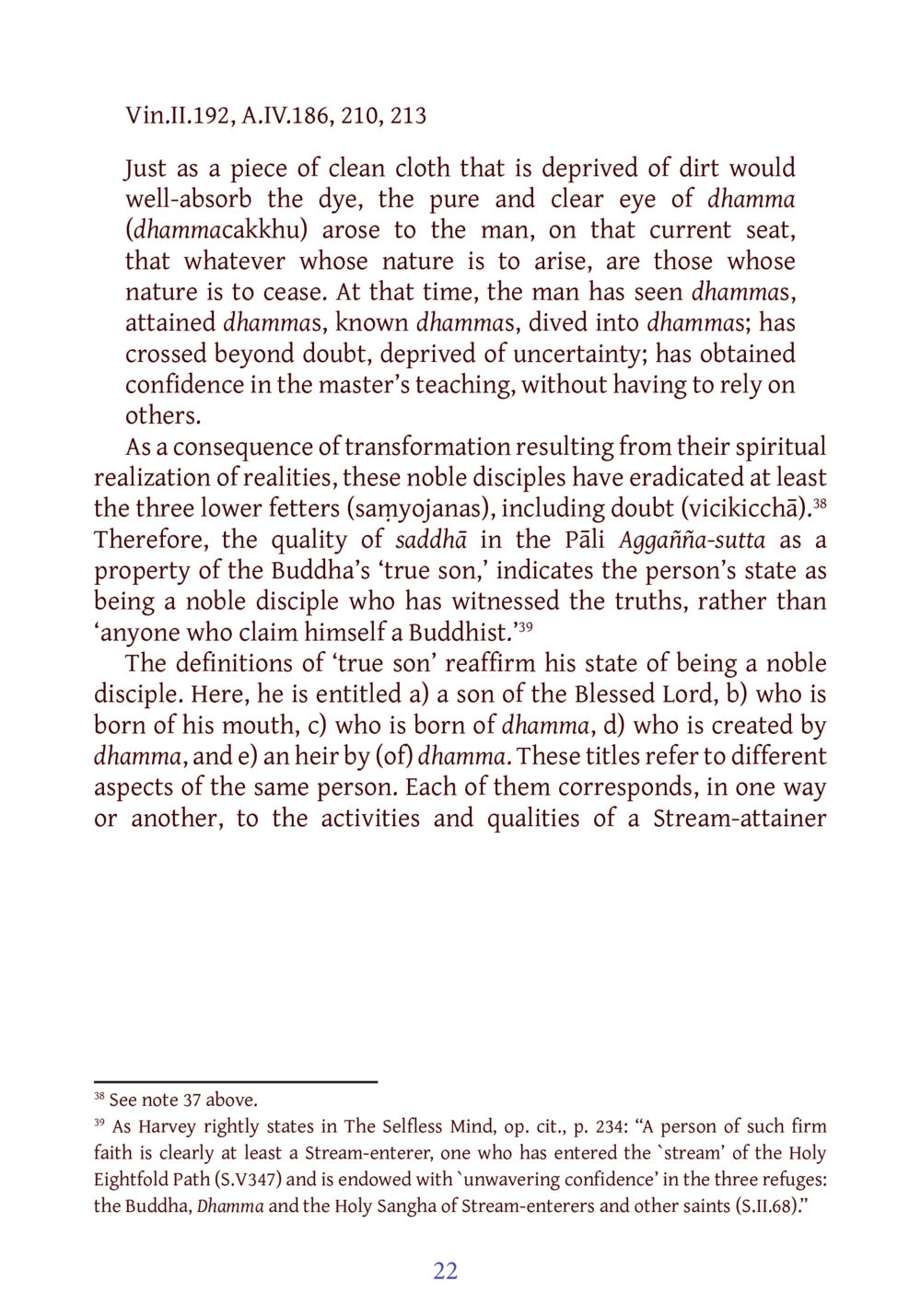Understanding the Noble Discipleship in Buddhism : หน้า 43/141
DIRI Journal : หน้า 43/141 Explore the qualities of noble disciples as per Buddhist teachings, focusing on faith and realization of truths.
0 ครั้ง

สรุปเนื้อหา
The text discusses the qualities of noble disciples in Buddhism, emphasizing the importance of clear perception of dhamma and the eradication of doubts and fetters. It describes the transformation experienced by those who truly understand Buddhism, highlighting the significance of being a 'true son' of the Buddha, born and created by dhamma. These noble individuals possess unwavering confidence in the teachings, establishing themselves as Stream-enterers on the Holy Eightfold Path. Understanding their state aids in recognizing genuine practitioners of Buddhism, as opposed to mere claimants. Further analysis is given on the role of saddhā in distinguishing a person’s spiritual stature. Visit dmc.tv for more insights.
หัวข้อประเด็น
- Noble Discipleship
- Dhamma Understanding
- Stream-Enterers
- Faith in Buddhism
- Eradication of Doubts
ข้อความต้นฉบับในหน้า
หน้าหนังสือทั้งหมด













































































































































